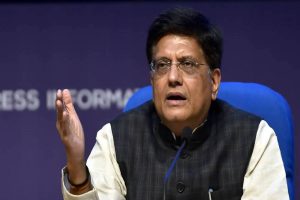The concept that human beings should be equal is very old. It was the fight against injustice and inequality between the French royalty and the citizens that drove the 18th century intellectual Jean-Jacques Rousseau to write “Man is born free, but everywhere he is in chains.”
These words sparked the French Revolution.Across the Atlantic in 1776, the newly independent United States of America wrote into the American Constitution, “we hold these truths to be self-evident, that all men are created equal.” Reality in the US then was not that simple – neither women nor slaves were considered equal. Nevertheless, by the 21st century, the view that all men are equal has been taken as a truism, even though to quote George Orwell, “all animals are equal, but some are more equal than others.”
Advertisement
There are three “stylized facts” about global income and wealth inequality. First, the gap “between nations” have narrowed, mainly due to the rise of emerging markets led by China, India and ASEAN. Second, within almost every country, the gap between the rich and poor have widened, especially in the last 30 years. Third, as Oxfam famously pointed out, the top 8 billionaires own as much as the poorer half of mankind.
Thomas Piketty’sbest-selling 2014 book, Capitalism in the 21st Century, undertook meticulous research into historical data to show that inequalities in wealth distribution had deep political roots. In the 48 years since the Nobel Memorial Prize in Economics was inaugurated, only two awards went to work on inequality: Amartya Sen on welfare and the 2015 award to Angus Deaton for his work on poverty, consumption and welfare. The rest were given mostly on quantitative economics, efficient resource allocation and market theory.
Why has inequality not been the centre of mainstream economics’ research agenda, including such important social issues as ecology, corruption, crime and political capture?
There are deep meta-economic (the thinking of thinking) reasons why economic theory, which began life as “political economy”, increasingly switched to “pure science”. By the 1980s, mainstream economics essentially became normative and quantitative, using mathematical models that borrowed heavily from physics. These reductionist and statistical models assumed away messy politics, rationalising the world in elegant theories, which focused on optimal policy solutions but ignored uncertainties such as financial crises and growing social inequities. Rational man became robots in mechanical models of the economy.
The English philosopher Stephen Toulmin (1922-2009) categorised Western Modernity (rise of modern science) into three phases. The first could be identified with 1436 when Guthenberg created typeset printing to around 1650, which coincided with the discovery of America, the search for the China trade after the loss of Constantinople, and the flowering of art, philosophy, literature and the beginnings of modern science. This period did not differentiate nature from humanity, as each European nation struggled between religion and statehood. Political philosophers like Francis Bacon (1561-1626) and Machiavelli (1469-1527) wrote on practical issues of politics and human behaviour, with an oral tradition of narratives. Dramatists such as Shakespeare told great stories about human drama.
But in 1648, the Treaty of Westphalia ended the Thirty Years War (over religion) which confirmed each sovereign state as master of its own affairs with its own adopted religion.
This ending of warring chaos created the second phase of Modernity, shifting towards secular science, rejecting ideas that blurred human affairs with nature, finding older ideas lacking rationality and rigour. Beginning with the work of astronomer Galileo (1564-1642) and French mathematician Rene Descartes (1596-1650), European thinking sought to become “intellectually perfectionist, morally rigorous, and humanly unrelenting”. This was a movement towards theory – looking for universal solutions that were general and applicable for all time.
The great scientist Isaac Newton (1642-1727) exemplified this period, shifting ideas dramatically from practical issues of human beings involving ethics and morality to theoretical concepts that sought to explain reality from reductionist, simplified models. Newtonian science offered an ideal and stable, mechanical view of the natural world.
This second phase of scientific Modernity rests on what Toulmin called the three pillars of “certainty, systematicity and the clean slate.” Modern economics, born from Adam Smith’s book Wealth of Nations at this time, offered a natural world that suited the rising power of the British Empire about free trade.
Mainstream economists were enamoured with Newtonian ideas. They assumed that their general equilibrium models of the economy can give optimal policy recommendations or projections, subject to laws that apply for all time and that we can always start with a clean slate. In reality, the economy and market is not always in equilibrium, the rules of the game changing through evolution and adaptation, and we can never start with a clean slate. All human systems are trapped by legacies of history, culture, institutions and past experience.
Since 1912, Newtonian physics was blown away by Einstein’s theories of relativity and quantum mechanics that recognised uncertainty and chaos as part of natural change. It is politics which explain why neo-classical economics never adapted to this profound change in scientific thinking.
After Pax Britannia, the American era was very comfortable with this timeless, universal model of the free market, with minimal interference from the state, giving automatic efficient resource allocation with stable equilibrium. Ideologically, America stood for free markets, because she was the biggest winner. Inconvenient problems such as inequality are market failures, which the state can take care of, ignoring the reality of political capture and vested interests. Mainstream free market economics became an ideology that suited the privileged elite, because essentially – “everyone can get rich, we can always redistribute later”. But once an elite few got rich, the powerful made sure that few paid serious attention to redistribution.
The latest tax cut proposals in the US prove this point. All indicators are that the rich will benefit more from the tax cuts than the poor, on the hope that the rich will invest and the middle class would spend. Meanwhile, welfare benefits and healthcare support for the needy are cut.
Put simply, politics drive economic theory, using theory like religion to legitimize the status quo.
Recognising inequality is therefore not an issue. The real question is: what can we really do to reduce inequality?
(Andrew Sheng writes on global issues from an Asian perspective)











